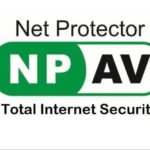One of the most important things the internet has done for many businesses is that it has been able to link businesses to the world. Today, irrespective of where your business is located, you can make sales and receive payments with the right system by collecting customer information.
However, this also came with its challenges. Many businesses have witnessed a bridge in their privacy, which has caused them to lose certain company’s data. The resultant effect of this is catastrophic—people who steal this data can use it against the organization and their customers.
Today, we will discuss nine ways to maintain privacy in business communication. Let’s get started!
1. Use end-to-end encryption when sharing files
When business owners communicate or share information, most times, this information is meant to be private. But criminal hackers are also interested in this information. End-to-end encryption can help businesses maintain privacy. With the use of encryption, only the sender and the receiver of a particular message can access the message.
2. Limit access
If your business is one that has several employees, then there is the possibility that private data can be leaked from within. If you want to maintain privacy in communication, then there is a need to limit access to private data to a handful of employees.
A computer system, hard drive, server room, mobile phones, etc. containing private information should be limited to only those who are supposed to have access to it. Sharing of these devices with other employees should be strictly prohibited.
3. Use strong passwords
Gone are those days where the use of birthday year, your name, or that of a close family member, or 12345 is used as a password. Many people can predict that, mostly those close to you and anyone who can leak your business communication. This is the reason why the use of strong passwords is encouraged.
A strong password contains a mixture of small and capital letters, numbers, and special characters. A good example would be pri_Vacy@Biz9754. This type of password would be difficult to predict. Plus, having a strong password is not enough. After using it for some time, it must be changed in case someone has picked it up while you were typing it.
4. Regularly update your system
Using outdated software and operating systems makes your system vulnerable and exposes it to possible cyber attacks. You regularly update your system to help it withstand possible attacks. Your systems should have intrusion detectors, firewalls, multifactor authentication, and encryption, and must be checked and updated occasionally.
5. Train and encourage your staff to maintain the status quo
Maintaining privacy in business communication is never a one-person show. Every employee, no matter their level, has a role to play. Companies must bring everyone on board because a single mole can expose their data. Sometimes, when employees expose this information to others, they may not know.
Therefore, organizations must create time to train their staff at all levels about data security and privacy. They must also encourage them to follow all the regulations to maintain privacy.
6. Invest in cybersecurity
If you want to secure your communication, it will not come cheap because maintaining privacy in business requires investment in many areas. First, you must install the right software; that is not cheap. You will need to maintain and upgrade them, which takes more money. But if you are serious about privacy in your business, you will know that all the money you will spend is worth it.
7. Perform a security audit
Putting all the security measures in place to maintain privacy in business communication is not enough. You will need to put your security measures through the litmus test and know how they perform. This can be done in two ways.
First, you can have the in-house auditors carry out the audit. Then, you get TRUSTED external auditors to check. It should be done every 6 months. The in-house audit should be done 6 months after the first installation, while the external audit should follow. This means in a year, you should have two audits. The essence of this is to detect any vulnerability and weakness and be proactive about it.
8. Printed paper management
While most privacy exposure may be digital, there are cases where privacy loss could be in printed paper. The same encrypted mail, if printed on paper, can fall into the hands of anyone. Plus, medical records may not necessarily be only in digital form.
While the information in printed paper moves from hand to hand and from office to office, the information there may not be private anymore. If your business is the type that still prints information on paper and needs to be transferred from one point to another, then there should be proper management of the information it carries as it changes hands. More care should be taken in concealing the information it carries, and unwanted people should not carry such files.
In addition, more effort should be made to properly dispose of printed papers, like shredding or burning them. You may not need the paper anymore, but it may still contain private information that can be used against your organization or customers.
9. Consult a professional
The best hands you can get regarding data security and privacy are professionals in the field. Even if you are doing the things mentioned above, it is still important to get the help of experts who are constantly up to date to help you implement the latest best practices. To get prospective professionals, visit Leadar and use its extensive database of B2B contacts to find exactly who you need.
Parting Thoughts
Maintaining privacy in business communication is the responsibility of everyone within that business, and it should not be left in the hands of just a few people. As information has been shared, it could be exposed. You need to abide by the tips in this guide to maintain privacy in your business communications.








